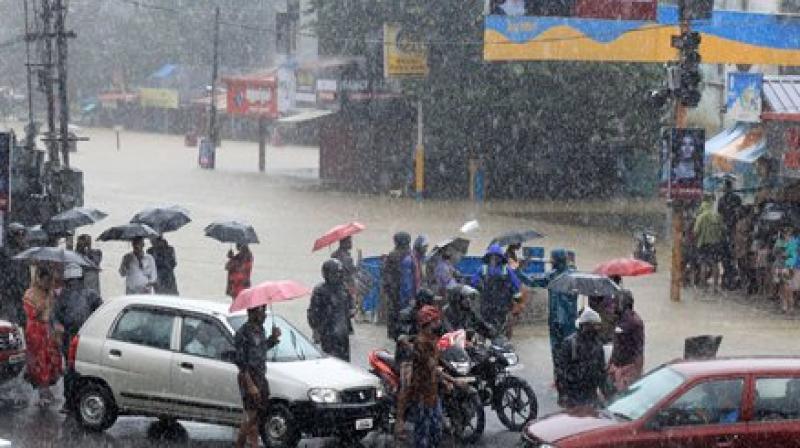Rain fury in Kerala might be part of global phenomena: ex-ISRO chief Madhavan Nair

Hyderabad: Eminent scientist and former ISRO chief G Madhavan Nair believes the monsoon fury in Kerala might be a part of "global phenomena" but local factors like deforestation and "invasion" of mountain slopes contributed significantly to flash floods and landslips in the state.
He said from the statistics point of view, this week's rainfall was a "peak" of the last 50 years, and was an "unusual phenomena" and could not be attributed to any systematic change. "Also, in many parts of Europe and other places, heat wave is going on. May be it (rain fury in Kerala) is part of global phenomena, it is my assessment," Nair, who hails from Kerala, told PTI.
But he hastened to add that "from one sample (the current spell), we cannot make a judgement. We have to keep a watch. But it (the heavy rainfall) is not contributed by Kerala alone. (It being part of a global phenomena cannot be discounted)".
Nair, who headed the Indian Space Research Organisation (ISRO) from 2003-2009, said deforestation has contributed significantly to the weather change in Kerala, where torrential rains and landslips have claimed 26 lives so far.
Also Read: 26 dead, red alert issued as rain lashes Kerala: CM says situation 'very grim'
In addition, unauthorised invasion of mountain slopes caused landfall, he said.
The veteran space scientist also said that the Kuttanad region, which is below the sea level, was not properly managed.
The recommendations made by the M S Swaminathan Research Foundation on Kuttanad a few years ago had also not been implemented, he claimed.
"If we manage all these things, flood waters would not have caused so much of havoc. A proper rain harvesting and water management system...that is what is required for the state now," Nair asserted.
The scientist said rivers in Kerala are full of sand resulting in floods in the event of "slightest increase" in normal rains. The rivers require "excavation" for easy passage of water. Kuttanad region needs a thorough planning on how water can be drained off, he said.
"The Swaminathan Committee report was comprehensive. If it was implemented, damage could have been minimised. Unfortunately, that report is virtually in cold storage for the last six years or so," Nair said.
"But we have to act positively. Forest...we have to pay more attention...maintaining and sustaining; we have to manage river beds; proper schemes for overall management of water are a must. We have to improve water storage and distribution system," he added.

